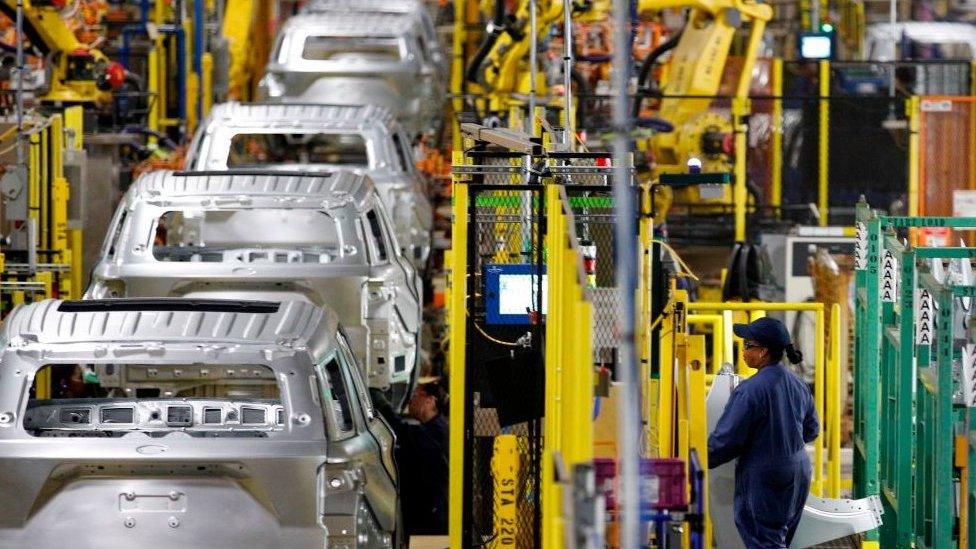Trump: Major carmakers sue US government over China tax
- Published

Major carmakers are suing the US government over import taxes it has imposed on Chinese parts.
Tesla is the latest auto firm to object to customs duties introduced by the Trump administration and is demanding refunds.
The US and China have imposed border taxes on each other's goods and services as part of a trade war.
Tensions between Washington and Beijing have rapidly escalated in recent weeks, mainly concerning technology firms.
A number of lawsuits are reported to have been filed by carmakers in the past few days in the New York-based Court of International Trade.
Mercedes-Benz in its filing accused Washington of "prosecution of an unprecedented, unbounded, and unlimited trade war impacting over $500bn in imports from the People's Republic of China".
Tesla in its filing called the tariffs "arbitrary, capricious, and an abuse of discretion".
Founder Elon Musk wants the tariffs cancelled along with a "refund, with interest" of import taxes paid, according to the filing.
Chinese-owned Volvo Cars has also filed a lawsuit saying it is in favour of free trade and open markets. "Volvo Cars strongly believes the way to reach economic growth is to reduce tariffs and harmonize international trade," a spokesman told the BBC.
Trade war
The trade war began in 2018 between the world's two biggest economies.
US President Donald Trump has long accused China of unfair trading practices and intellectual property theft.
In China, there is a perception that America is trying to curb its rise as a global economic power.
Early this year the two signed their "phase one" deal that partially ended the dispute. Washington backed down on tariffs on $160bn in Chinese goods, particularly consumer electronics.
However, tensions between the two nations have massively ramped up since.
Earlier this month the World Trade Organization (WTO) ruled that tariffs the US imposed on Chinese goods were "inconsistent" with international trade rules.
The WTO said the US did not provide evidence that its claims of China's unfair technology theft and state aid justified the border taxes.
But the US retaliated saying that the WTO was "completely inadequate" to the task of confronting China.
Ambassador Robert Lighthizer, America's top trade negotiator, said the US "must be allowed to defend itself against unfair trade practices".